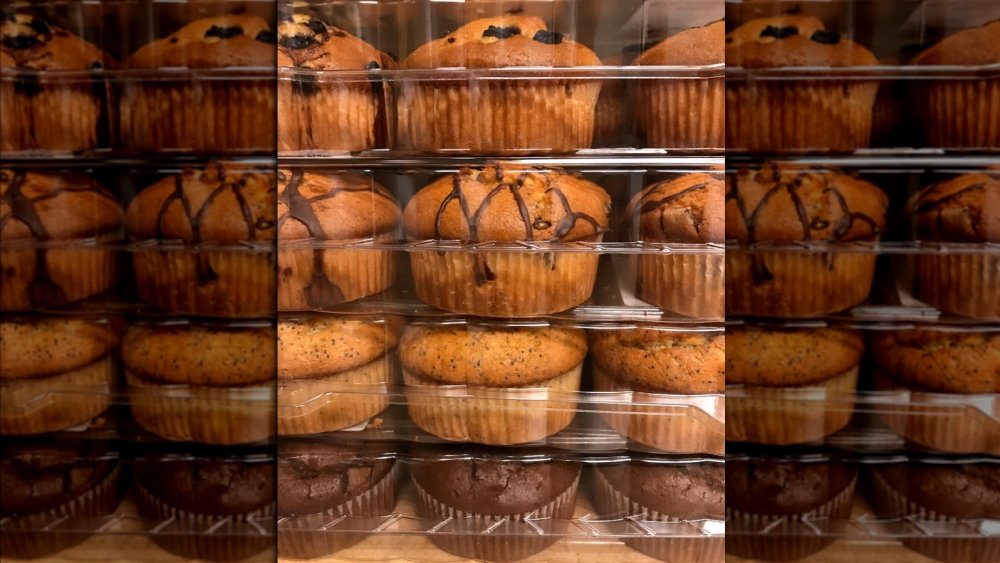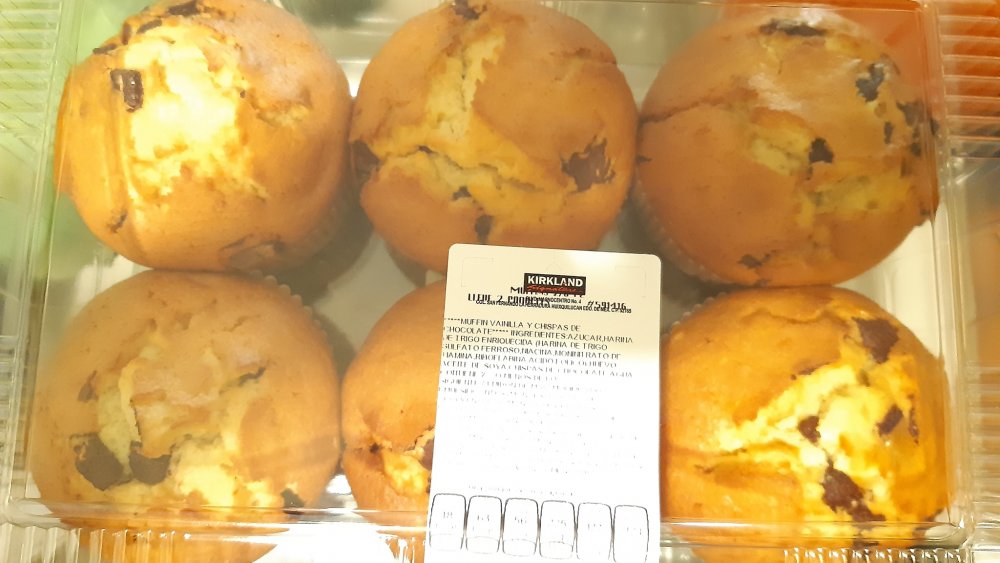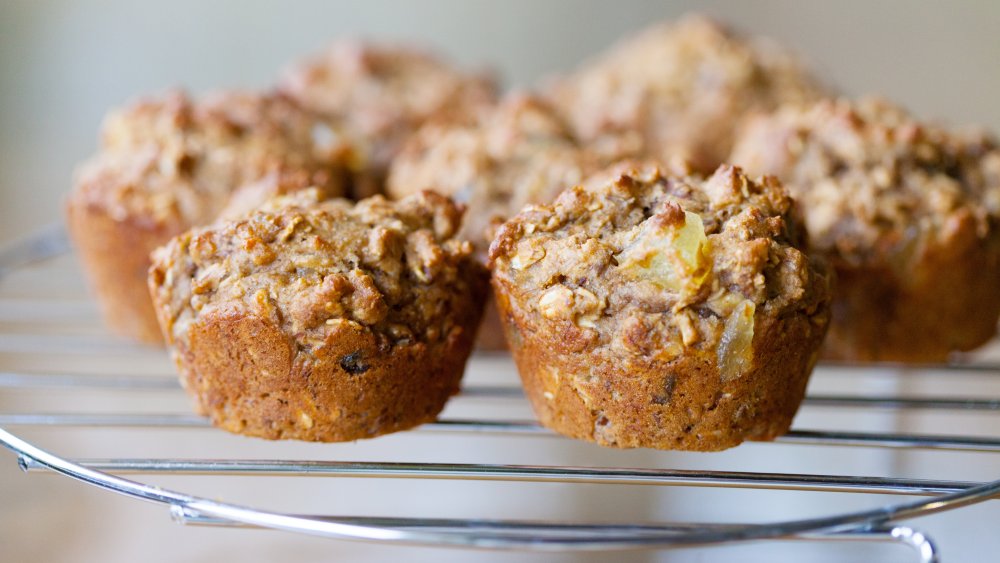What Makes Costco's Muffins So Concerning
You know this for a fact – whenever you're shopping at Costco, you simply cannot avoid the bakery section. No matter how you may try, you feel its pull, you smell those oh-so-enticing aromas, and even if you have iron willpower, chances are you'll need to cut through there, anyway, to get to some other part of the store. While Costco's bakery offers many temptations, one of the hardest to resist might be its muffins. If you've ever tasted one, you probably found yourself addicted, since they're just so moist and tender and buttery and flavorful and a host of other epicurean adjectives.
Even if you've yet to experience the kind of joy that only a Costco muffin can bring, the muffins are bound to catch your eye since the one thing they're known for, above all, is for being huge. Plus, it's not like you can buy only one. This is a big box store, after all, so they want you to buy a big box of them. Twelve in all, for approximately 1.3 bazillion calories. Ah yes, the calories. Sadly, these muffins do have their downside. We spoke to nutritionist Melissa Kathryn about everybody's favorite Costco bakery treat, and sadly, she confirmed what we already knew in our hearts to be true: While these muffins + our tastebuds = true love, they're no friend to our waistlines or to our overall health and well-being.
Their ingredients are iffy
Kathryn calls Costco muffins "nothing more than high-fat and sugar," and says they'll "leave your energy crashing shortly after eating and craving more sugar and carbohydrates within an hour of consumption." So, okay, kind of par for the course for any giant-sized pastry. She also throws shade on how they're made, however, saying they contain "'filler' foods like corn," which she explains is used due to being inexpensive but has "little to no nutritional value." She goes on to say that corn is found in many mass-produced chemically-processed foods. Other ingredients she calls out are white flour, white sugar, and high-fructose corn syrup along with corn oil and vegetable oil, which she says are "two of the worst oils to consume from a nutrition standpoint."
As to the likely effect Costco muffins will have on your body, Kathryn says that the fact that they lack protein and healthy fat while containing excessive amounts of sugar and carbs is likely to "leave you feeling almost immediately sluggish, spike your insulin response, [and] leave you with brain fog," and predicts that you'll probably be wanting even more sugar rather than healthier fare once you're done. (Luckily, or unluckily, you'll still have 11 more muffins to satisfy that craving.)
Portion size is all-important
According to Kathryn, "one muffin is the equivalent caloric intake of a small meal," which is sad ut true since the nutritional label (via Instacart) reveals that each blueberry muffin has 590 calories while each chocolate one has 680. (Fall favorite apple crumb muffins come in at an even more dismal 690 calories apiece.) She says that the main problem lies in their size, as Costco muffins "triple the serving size of what is deemed a proper portion for a dessert-like item," and their lack of nutritional value puts them firmly in the dessert category.
While we can't do anything about the ingredients, portion size is something we can control. Kathryn suggests you cut each muffin in thirds or, better yet, quarters, and then refrigerate or freeze the pieces in individual baggies. (Frozen muffins can be quickly revived with a few seconds in the microwave.) According to Kathryn, "the goal with baked goods and sweet treats is to keep the portion sizes smaller than what you see in store," and says that all we really need is one small bite to satisfy our need for a sweet treat. She says it's a shame how our super-sizing society has " replaced a regular portion and tripled it," so what is now considered a normal serving size is "way more than what our bodies need and can process," and that all the excess fat and sugar we take in is converted into ... well, you know. Muffins lead to muffin tops.
Healthier alternatives from your home kitchen
The very best alternative to Costco muffins, however, involves baking your own, healthier muffins at home. That way you can avoid questionable ingredients – Kathryn suggests replacing unhealthy oils with applesauce and using alternative sweeteners like Swerve, xylitol, plant-based stevia, or superfood monk fruit instead of sugar in order to avoid the dreaded "sugar crash" as well as save a lot of calories. You can even add value to your homemade muffins by bulking them up with protein powder or perhaps add bran or chia or other healthy ingredients. Plus, you can bake them in mini muffin pans so you stand a better chance of stopping yourself before you've gone way overboard on portion size.
Kathryn says that baking and eating homemade muffins rather than buying Costco's behemoths will "leave you feeling empowered around your food," since you will know and control exactly what you're consuming. Most of all, she says, you can "enjoy...how those ingredients make you feel [as] you reach your health and wellness goals."



